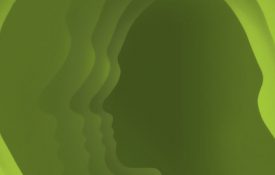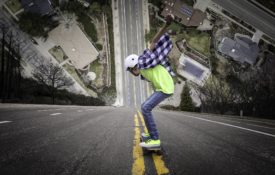-

New Content from Advances in Methods and Practices in Psychological Science
A sample of articles on cross-cultural generalizability, adjusting for publication bias, pitfalls of popular path models, causal justification, and much more.
-

Exploration and Risk-Taking: Hallmarks of Adolescence That Increase Well-Being
The role of exploration and risk taking in sustaining adolescent well-being and establishing social connectivity is the topic of a recent article published in Psychological Science. In this podcast, you’ll hear from the two authors: Natalie Saragosa-Harris and Catherine Hartley.
-
Scaling Up Change: A Critical Review and Practical Guide to Harnessing Social Norms for Climate Action
Psychological Science in the Public Interest (Volume 23, Number 2)Read the Full Text (PDF, HTML) Temperatures are increasing, glaciers are shrinking as sea levels rise, and natural disasters—from wildfires to floods—are becoming more frequent. Moreover, these extreme weather events and associated resource insecurity are likely to exacerbate political instability and global conflicts. A recent example of the climate crisis is the unprecedented floods in Pakistan that in September, 2022, put a third of the country under water, killing nearly 1,500 people and impacting 33 million. One major cause of the climate crisis is increasing greenhouse-gas concentrations, caused by carbon emissions.
-
What’s the Right Age to Get a Smartphone?
It is a very modern dilemma. Should you hand your child a smartphone, or keep them away from the devices as long as possible? As a parent, you'd be forgiven for thinking of a smartphone as a sort of Pandora's box with the ability to unleash all the world's evils on your child's wholesome life. The bewildering array of headlines relating to the possible impact of children's phone and social media use are enough to make anyone want to opt out. Apparently, even celebrities are not immune to this modern parenting problem: Madonna has said that she regretted giving her older children phones at age 13, and wouldn't do it again.
-
Rereading ‘the Gift of Fear’ in the Age of Mass Shootings
It’s been 25 years since Gavin de Becker’s influential book “The Gift of Fear” was published, teaching readers how to tell the difference between “true fear” and “unwarranted fear” by trusting their intuition. De Becker opens the book with a story about a woman who was raped and nearly murdered after letting a man into her apartment, even after she felt uncomfortable by his presence. He recounts how this woman initially ignored warning signs to avoid seeming rude. But after the rape, when the man went to the kitchen to get a knife to kill her, she trusted the impulse that told her to flee, which saved her life. “The Gift of Fear” skyrocketed de Becker to personal safety stardom.
-
3 Common Thinking Traps and How to Avoid Them, According to a Yale Psychologist
The mind is a tricky thing. It can lead us to believe that we can confidently sing "Bohemian Rhapsody" at karaoke even though we haven't heard the song in years, or that one terrible review on Yelp is reason enough not to go to a 4-star rated restaurant. These thinking errors are what people in the psychology community call cognitive biases. And that's the focus of a new book out this month, Thinking 101: How to Reason Better to Live Better, by Yale psychology professor Woo-kyoung Ahn. In the book, Ahn highlights some of the most pernicious cognitive slip-ups we make — and how biases can cloud our judgment and affect the people around us. ...

